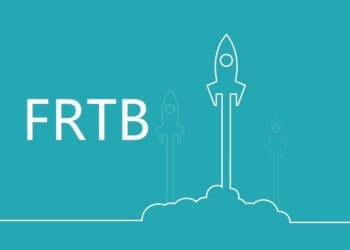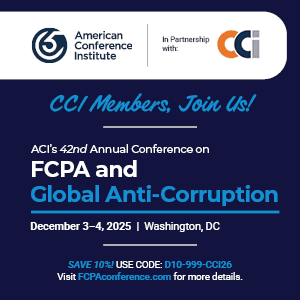Mechanisms for shareholder class-action lawsuits are being developed around the globe. Dechert attorneys David Kistenbroker, Joni Jacobsen and Angela Liu offer insights on what legal and compliance departments can do to shield their organizations from litigation risk.
Stakes continue to grow in investor litigation around the globe, and companies must continue to prepare for the ensuing litigation risks that the globalization of investor litigation brings. A recent report has indicated that as securities litigation has gone global, companies facing potential securities litigation around the globe should be aware of the trends, including the magnitude of the cases, the help of third-party litigation funding driving the volume of cases, the potential for forum shopping and new legislation that may auger against potential abuses in a changing environment.
By way of background, in 2010, the U.S. Supreme Court issued Morrison v. National Australia Bank Ltd., 130 S. Ct. 2869 (2010), an important decision that extinguished access to American courts for “F-cubed” cases (foreign investors, suing a foreign issuer, traded on foreign exchanges). While American courts continue to grapple with the scope of its holding, its effect on the law around the globe has been far-reaching. In fact, even U.S. securities litigation plaintiffs’ firms are at the forefront in forming foundations of international investors bringing shareholder actions in non-U.S. jurisdictions.
A number of high-profile collective investor actions are pending throughout the world. In 2018, the Amsterdam Court of Appeals approved the €1.3 billion Fortis settlement in the Netherlands, which was unprecedented and represents the magnitude of liability exposure for issuers. Currently, investors in Germany are pursuing Volkswagen for more than €9 billion; meanwhile, the company is also fending off investor litigation in the Netherlands and has settled with purchasers of American Depository Receipts in the U.S.
In addition, the availability of litigation financing in jurisdictions may provide the incentive to bring more claims. For example, in Australia, one of the most attractive jurisdictions for litigation funding in the world, the number of class-action suits has been on the rise, and following trends in Australia, the continued rise of litigation funding in Europe is likely to facilitate further collective securities actions there. Litigation funders have backed significant claims, such as the Tesco litigation in the U.K. regarding an overstatement of £250 million and the Volkswagen litigation with €9 billion at issue in Germany – two of the most high-profile recent litigations in Europe. Companies should be aware that the potential for large payouts has given third-party litigation funders the incentive to provide capital to shareholders to pursue more claims.
But questions remain regarding the differences in collective action mechanisms around the world and the true enforceability of certain settlements. For example, the continued differences between opt-out and opt-in class structures for settlements create a problem where issues litigated in one jurisdiction may still not be resolved elsewhere, thus preventing the issuer from potentially obtaining global peace. And the differences between the various EU members’ collective redress mechanisms continue to be a risk for issuers, as enterprising plaintiffs have the opportunity to engage in forum shopping.
Companies will continue to face changing risk exposure from collective investor actions. With this evolving landscape and accompanying potential for gamesmanship and forum shopping, compliance departments should consider continuing to monitor this changing environment, revisiting director and officer insurance coverage to prepare to litigate on multiple fronts and reviewing internal processes and controls.



 David Kistenbroker is Global Co-Leader of the white collar and securities litigation practice of
David Kistenbroker is Global Co-Leader of the white collar and securities litigation practice of  Joni Jacobsen, a partner at Dechert LLP, defends publicly traded companies and their directors and officers when they become entangled in securities class-action litigation, derivative litigation, SEC investigations and corporate governance disputes. Ranked in The Legal 500 (U.S.) in four categories, Ms. Jacobsen was named among the Most Influential Women Lawyers in Chicago by Crain’s Chicago Business in 2017 and has been named to the Illinois Super Lawyers list every year since 2013. She is currently a Lecturer in Law at the University of Chicago Law School, her alma mater, where she teaches a seminar in Strategic Considerations in Securities Litigation.
Joni Jacobsen, a partner at Dechert LLP, defends publicly traded companies and their directors and officers when they become entangled in securities class-action litigation, derivative litigation, SEC investigations and corporate governance disputes. Ranked in The Legal 500 (U.S.) in four categories, Ms. Jacobsen was named among the Most Influential Women Lawyers in Chicago by Crain’s Chicago Business in 2017 and has been named to the Illinois Super Lawyers list every year since 2013. She is currently a Lecturer in Law at the University of Chicago Law School, her alma mater, where she teaches a seminar in Strategic Considerations in Securities Litigation. Angela Liu is a partner in Dechert LLP’s litigation practice group, where she focuses on the defense of publicly traded companies and their directors and officers in securities class-action litigation, derivative litigation, SEC investigations, merger litigation, corporate governance disputes and other complex commercial litigation.
Angela Liu is a partner in Dechert LLP’s litigation practice group, where she focuses on the defense of publicly traded companies and their directors and officers in securities class-action litigation, derivative litigation, SEC investigations, merger litigation, corporate governance disputes and other complex commercial litigation.








